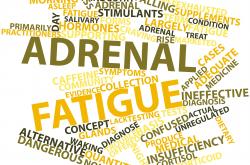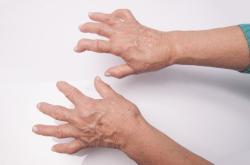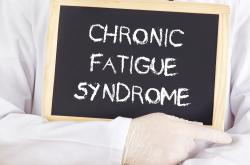IBS: Irritable Bowel Syndrome and Its Effects on Fatigue
For the many millions of people who have to endure the effects of irritable bowel syndrome, the pain and discomfort associated with that condition are bad enough. Many, however, also have to deal with the extreme fatigue this condition often causes.
Anyone who has ever known a friend or family member suffering from irritable bowel syndrome (IBS) understands how frustrating that condition must be. Constant trips to the bathroom, abdominal pain, and abnormal levels of gas and bloating can make life miserable. And, as if that were not bad enough, many patients also suffer from varying degrees of fatigue too.
What is IBS?
To understand how to treat the fatigue related to irritable bowel syndrome it is important to understand what it is, what causes it, and its primary symptoms.
Irritable Bowel Syndrome
IBS is a condition that affects the intestinal tract. It occurs primarily in people who seem to suffer from overly sensitive intestines, and involves a variety of symptoms that can make life miserable for any patient. Often times, patients suffer frequent pain in the abdomen, as well as difficulties with bowel function.
The Syndrome’s Causes
The exact cause of IBS is unknown, but there are some contributing factors that appear to play a role in the development of this disorder in certain patients. For example, researchers have noticed an imbalance in the level of serotonin in people who suffer from this condition, as well as a recent history of heightened stress. Often times, IBS develops in the wake of another illness, leading some to believe that a weakness in the immune system leaves patients more susceptible to intestinal disruption.
There are also specific trigger events that can cause IBS flare-ups. These include things such as:
- Various antibiotics and other medications
- Eating
- Anxiety
- Depression
- Stressful situations
- Changes in hormone levels
The Syndrome’s Symptoms
IBS is so common that most people don’t even realize that they have it. They alternate between diarrhea and constipation with great frequency, and just assume that it is related to their diet or other factors. As a result, they often don’t go to the doctor when the mild symptoms strike. However, when more severe bloating and cramping occurs, patients often seek the help they need.
Symptoms include things like diarrhea that has no other explanation, constipation, abnormal gas volume, abdominal pain, and fatigue. Many people often find themselves feeling as though their bowels are still full even after they’ve had a bowel movement. Those bowel movements often vary dramatically in the size and consistency of the movement and the discharged stool.
How Does IBS Contribute to Fatigue?
There are many factors that researchers believe cause fatigue to be associated with IBS. One is that this condition often develops in the wake of an infectious issue or after food poisoning. In those instances, the immune response becomes weakened by the infection, causing a fatigue situation. On the other hand, there are other instances in which the immune system goes into overdrive in the gut. When the immune system gets confused, it can cause inflammation in the intestines which can disrupt blood flow and lead to a drop in body energy.
At the same time, studies indicate that there is a difference in the way these patients process pain as compared to healthy individuals. The irritated bowel syndrome patient has a heightened sensitivity to pain, which can lead the body to elevate its stress response to deal with the issue. That can lead to low cortisol levels over time, which causes fatigue. There also appears to be a genetic factor that makes some people more prone to contracting the disorder.
How Can You Relieve IBS Fatigue?
The combination of irritated bowel syndrome and fatigue can pose a special challenge for patients. In most other fatigue situations, dietary changes are a key ingredient for elevating energy levels – along with exercise. In the IBS patient, however, the food selection often has to be much more selective, since many types of food can exacerbate the condition. As for exercise, few people can get inspired to move their bodies when they’re literally afraid to be out of sight of a toilet seat.
Despite those challenges, those two lifestyle changes need to be made, along with other changes, various medication, and even psychotherapy of some sort to relieve stress and anxiety.
Food Changes
The dietary situation has to be managed carefully with this disorder. Since the body of an IBS patient can be sensitive to many different types of foods, the selection of healthy food choices is of paramount concern. For example:
- Fatty foods should be limited, since they often irritate the bowels even more. That means no fast food, fried options, etc.
- Caffeine should be avoided, since it can cause dehydration and disrupt bowel activity by stimulating the intestines.
- Fiber must be increased to get the bowels moving. Skip the supplements and go straight for the natural sources: lots of fibrous fruits and vegetables.
- If gas is an issue, stay away from things like cabbage, broccoli, and beans.
- If you suffer from diarrhea, avoid dairy products as much as possible.
- Increase your fluids to keep everything moving properly.
Exercise
You have to keep your body moving if you want your bowels to move as they should. If you become sedentary, you’ll find that your bowels become even more constrained, and the condition can worry. That will also increase your fatigue and make it even harder to overcome your symptoms. Even light exercise in your own living room can be a great way to start – and can keep you within a short distance of the bathroom should nature call.
Medications
The medications used to treat this disorder can vary according to the symptoms as well. While the disorder is considered chronic in nature, many medications can at least help to limit the impact of symptoms and enable more normal activities. Drugs used for IBS include various over the counter options, as well as prescription solutions for both constipation and diarrhea.
Counseling
With pain, discomfort, and fatigue all combining in this disorder, it is no wonder so many patients suffer mental and emotional problems as they struggle to manage their condition. Counseling can help with those issues, providing an outlet for venting and a system of support for beleaguered patients. This counseling can involve a variety of things including psychotherapy, help working through anxiety issues, and education about relaxation techniques.
Irritated bowel syndrome is one of those conditions that most people shy away from discussing, but ignoring it or pretending that it doesn’t exist won’t help to resolve the pain, discomfort, or fatigue. If you’ve experienced the symptoms associated with this disorder for several months in a row and have yet to seek medical attention, do so as soon as possible. If you do have IBS, you’ll quickly discover that your doctor can help you to manage the condition, relieve the fatigue, and return to a normal quality of life.
You might also be interested in:
- IBS Diet and Fatigue. http://www.livestrong.com/article/404697-ibs-diet-and-fatigue/
- Prevalence of irritable bowel syndrome in chronic fatigue. http://www.ncbi.nlm.nih.gov/pubmed/0008961203
- Irritable Bowel Syndrome in Fibromyalgia & Chronic Fatigue Syndrome. http://chronicfatigue.about.com/od/whyfmscfsarelinked/a/IBS.htm
- Irritable Bowel Syndrome (IBS) Health Center. http://www.webmd.com/ibs/guide/irritable-bowel-syndrome-ibs-treatment-overview
- Why does irritable bowel syndrome (IBS) cause fatigue? http://www.sharecare.com/health/ibs-complications/why-irritable-bowel-cause-fatigue
- Treating Chronic Fatigue Syndrome and IBS. http://www.everydayhealth.com/digestive-health/ibs-meet-cfs-the-link-between-irritable-bowel-and-chronic-fatigue-syndrome.aspx














Leave a comment